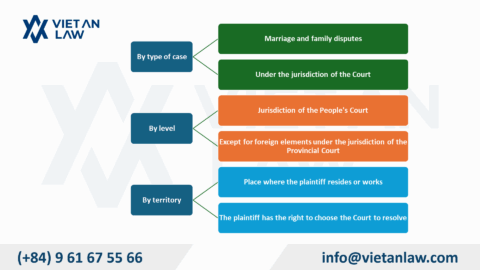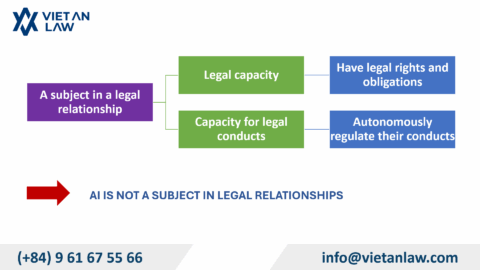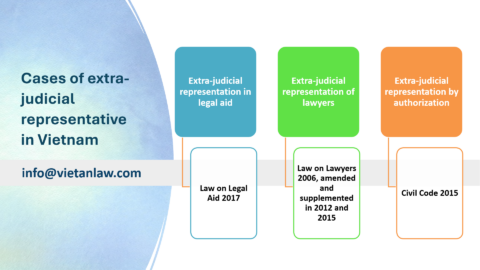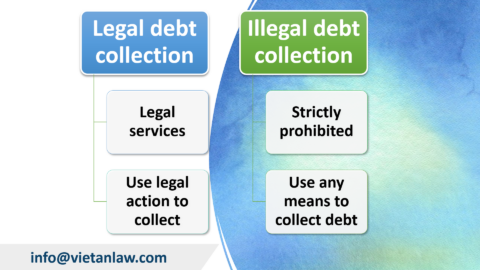Commercial business disputes mainly involve activities with profit goals. Therefore, business and commercial disputes arise mainly between subjects carrying out activities to make profits with each other, specifically between traders or at least one party of the disputing subject. is a businessman. In the following article, Viet An Law will present the characteristics of commercial mediation in Vietnam.
Table of contents
Mediation is a legal term that is not new in Vietnam. Before 2017, regulations on dispute resolution by mediation were recognized in both domestic law and international treaties that Vietnam signed. For example, Article 317 of the 2005 Commercial Law regulates mediation, Article 338 of the 2015 Maritime Code regulates negotiation in resolving disputes, and Article 14.1 of the 2014 Investment Law regulates mediation in disputes related to investment activities. In addition, the Vietnam – US Trade Agreements, Vietnam – India and Vietnam – Laos BIT Agreements also encourage the use of ADA methods, including mediation.
With the advent of Decree 22/2017/ND-CP, the term “commercial mediation” is uniformly regulated and has a legal framework that defines mediation methods in commercial disputes.
Commercial mediation can be understood as an independent method of resolving business and commercial disputes. Accordingly, the content of the dispute is mainly related to activities with profit goals. Dispute resolution by commercial mediation takes place in a voluntary, confidential procedure with the participation of the disputing parties and a neutral third party (called a commercial mediator) by the parties. side of choice. Commercial mediators assist disputing parties to reach an agreement based on self-determination (party autonomy principle).
Vietnamese law not only regulates commercial mediation methods but also regulates mediation in litigation (court and arbitration methods), local mediation, and labor mediation. To distinguish these 4 methods, we can rely on the following criteria:
| Legal basis | Scope of application | Mandatory | Legal results | |
| Commercial mediation | Decree 22/2017/ND-CP | Disputes arising from commercial activities;
Regulations on standards for mediators. |
No, according to the agreement of the parties | Minutes of successful mediation can be recognized and enforced in Court. |
| Mediation in litigation | Civil Procedure Code 2015
LTTTM 2010 |
Court proceedings and arbitration.
Regulations on standards for mediators, or mediators who are judges in court proceedings. |
Mandatory for civil disputes (Article 205 of the Civil Procedure Code)
Not required for arbitration proceedings (Article 58 LTTTM) |
Minutes of successful mediation are recognized as court decisions or arbitration awards and are enforced according to civil judgment enforcement law. |
| Local mediation | Local mediation Law 2013 | Geographic scope (village, village, residential group…)
There are no regulations on mediator standards and mediation procedures. |
Not required, carried out flexibly according to the needs of the parties | The minutes of successful mediation are not enforceable. |
| Labor mediation | Labor Code 2019 | Labor dispute
Regulations on standards for mediators (appointed by the Chairman of the Provincial People’s Committee). |
Some mandatory disputes before filing a lawsuit in court (Article 188 of the Labor Code) | The minutes of successful mediation are not enforceable. |
| No | Advantage | Mediation |
| 1 | Flexibility | Jurisdiction is based on the agreement of the parties.
Time, location, and mediation procedures are as agreed upon by the parties to save time and effort. There are no regulations on verifying information, evidence or procedural considerations. |
| 2 | Friendly | There are no fixed regulations regarding the language, behavior, and behavior of participants in the mediation session.
Atmosphere of goodwill and cooperation, not adversarial or judgmental. |
| 3 | Solution method | The mediation process provides an opportunity for the parties to clearly express their views, as well as provide presentations and explanations to the other party.
Reconcile the interests of the disputing parties. The parties are free to propose legal solutions. The parties are directly involved in drafting the minutes of successful mediation. The parties have the right to decide and know the mediation results right at the mediation session. |
| 4 | Maintain relationships | The result is based on the compromise of interests and win-win benefit, so both parties benefit and maintain long-term business cooperation. |
| 5 | Security | The mediation session is held privately, the content of the discussion is confidential with the third party and with the other party in case the information is obtained from a confidential exchange between the mediator and one party.
Information that has not been agreed upon in writing or under the enforcement provisions of law may not be disclosed by any person participating in resolving the dispute through mediation (Article 4.2 of Decree 22/2017/ND-CP) |
Because mediation usually only takes 1 day, dispute resolution time is quick. When choosing commercial mediation, the parties will limit the risk of business interruption such as legal proceedings such as commercial arbitration or court.
Commercial mediation is a method of resolving disputes according to a process agreed upon by the parties according to the rules of a mediation organization, or according to the law. Once a three-party relationship has been established including the disputing parties and the mediator, the mediator will conduct mediation according to a certain process with the principle that the parties make their own decisions, the mediator only is a supporter.
Mediation procedures are flexible, and not as rigid as the dispute resolution procedures used by the parties Disputes are decided in arbitration and court. In addition, because commercial mediation is not a judicial litigation process, this model meets the need for amicable dispute resolution. The cooperative attitude between the parties, friendliness, and flexibility in the mediation process will determine the success of a commercial mediation case.
Commercial mediation is also a confidential process. Similar to arbitration, mediation cases are also resolved non-publicly to ensure the information of the parties in business and commercial relationships. In terms of security level, commercial mediation has a higher security process than commercial arbitration. In commercial mediation, the mediator may also have to keep information about one disputing party secret from the other disputing party. Meanwhile, in commercial arbitration relationships, the dispute resolution session needs to be public to the disputing parties, the principle of confidentiality only applies to the arbitrator not disclosing information about the dispute to the third parties.
Above is an article about the characteristics of commercial mediation in Vietnam. Clients who need corporate legal advice or dispute resolution by commercial mediation, please contact Viet An Law Firm for the most effective support!




